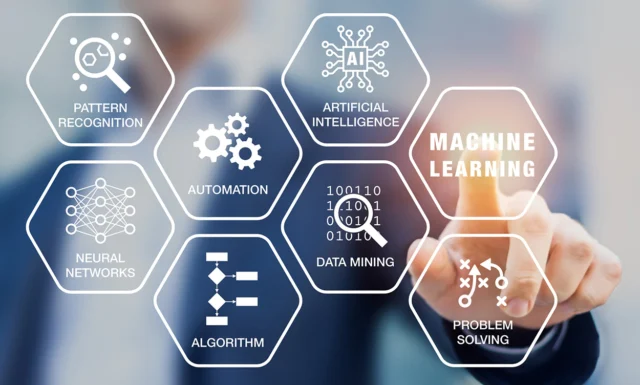
Ready to experience the future? Machine learning has been on the rise for years now, and that trend is continuing with casino game development. From poker to blackjack, casinos are finding ways to incorporate AI-driven gaming experiences. In this blog post, we’ll explore how machine learning will be used in casino game development and why it’s such a popular choice. Let’s take a look at what the future of gaming holds!
Types of Machine Learning Algorithms Used in Casino Game Development

In recent years, the use of machine learning algorithms has become increasingly popular in the development of casino games. This is due to the fact that these algorithms can be used to generate a random outcome for the game which means that there are no biased or predetermined results. This gives both players and game developers an advantage as they can rest assured knowing that their game will always produce fair results. Make sure to visit this url to see how ML is implemented in online casino games.
Supervised Learning
Supervised learning is one of the most commonly used types of ML algorithms in casino game development. With supervised learning, a set of data points is analyzed and then used to train an artificial intelligence model. The model is then able to detect patterns within the data and use them to predict future outcomes within its own environment. As such, supervised learning is well suited for scenarios where there are multiple variables at play and needs to make predictions related to gambling odds and outcomes with distinct precision levels.
Unsupervised Learning
Unsupervised learning involves training an AI model without providing it with any labels or categories for input data-point analysis and pattern recognition. Instead, this type of ML algorithm relies solely on raw input data such as customer preferences or wagering patterns from every player in a casino game environment (a process known as clustering). This allows unsupervised models to develop their own insights into potential patterns or relationships from the available data set which can be used by developers to fine-tune the randomization algorithm for their games accordingly.
Reinforcement Learning
Reinforcement Learning (RL) is another popular machine-learning approach employed by developers looking to create more sophisticated casino games alongside AI engines being able to generate random outcomes with near perfection accuracy levels each time it’s invoked. RL algorithms allow programs/AI engines written using them, act similarly like humans do – i.e explore objects/events around them at any given time and react with appropriate actions depending on the situation available at hand – without requiring explicit commands telling them what those actions have to be; just like humans do! By employing RL techniques on various layers of strategy building and planning within a Casino Game application (particularly during certain stages), Casino Developers hope they can introduce another layer of sophisticated participants into their virtual gaming environment who’ll equally enjoy and capable enough of creating great strategies against other human players competing against such AI elements/agents thus providing an overall competitive yet enjoyable experience for all involved individuals playing these games round-the-clock!
Techniques Used to Optimize Machine Learning in Casino Games

When developing casino games, it can be used to further optimize the gaming experience and ensure an enjoyable environment for players. This process is referred to as optimization, and it applies certain techniques to modify the outcome of a game in favor of the user. It can also help automate tasks such as game rule enforcement or analysis of player behavior, which allows for faster decision-making and better customer service.
When utilizing this system to optimize games, some of the techniques that are typically employed include:
- Deep learning algorithms, which can be utilized to analyze complex data sets for predicting outcomes more accurately.
- Pattern recognition algorithms, which can detect patterns and similarities in gaming behavior or outcomes so that player preferences can be targeted more effectively.
- Evolutionary optimization methods, which involve changing certain factors over time in order to improve a system’s performance by comparing new solutions against existing ones.
- Genetic programming, which uses evolutionary algorithms along with a series of genetic operators in order to evolve complex solutions based on an already specified set of conditions.
- Supervised and unsupervised clustering methods, where supervised clustering focuses on grouping data with predefined class labels and unsupervised clustering does not rely on predefined class labels; instead it is used for discovery purposes.
By applying these different machine learning techniques casinos are able to better tailor their offerings around customer preference while creating an enjoyable atmosphere where all users feel comfortable playing their favorite game titles.
Examples of Machine Learning Applications in Casino Games

Machine learning is becoming increasingly more useful in the casino gaming industry in order to deliver a more personalized and high-quality gaming experience for players. AI-driven techniques can be utilized in game development to create appealing features, games and reward systems for players. Examples of how machine learning is applied in casino game development include:
- Data Analysis: Machine learning algorithms allow casinos to analyze data from previous game events and outcomes, weather conditions, player behaviour, engagement levels and more. By using this data, casinos can develop accurate predictive models that enable them to improve game development strategies and make better business decisions.
- Game Personalization: Edge-cutting technologies like natural language processing (NLP) enable casinos to design interactive user interfaces with personalized recommendations that accurately reflect users’ preferred games. These personalized recommendations provide a much better user experience than generic ones, helping to drive customer loyalty and retention rates.
- Reward Systems: Advanced algorithms make it easier for casinos to reward loyal customers based on their playing history data such as frequency of play or money spent during the session. This builds a sense of loyalty among players since they are rewarded for their individual playing habits rather than just on luck alone. The reward system also enables casinos to offer unique promotions to specific individuals that drive further engagement levels with their existing customers base.
Conclusion
In conclusion, ML can be used to create custom virtual players, optimize design features and automate repetitive tasks. It will also enable developers to build more immersive and interactive games that are tailored to individual player’s preferences and habits. With advancements in technology, casinos may soon transition from traditional brick-and-mortar establishments into tech-savvy online networks with unique personalization options for each customer.









